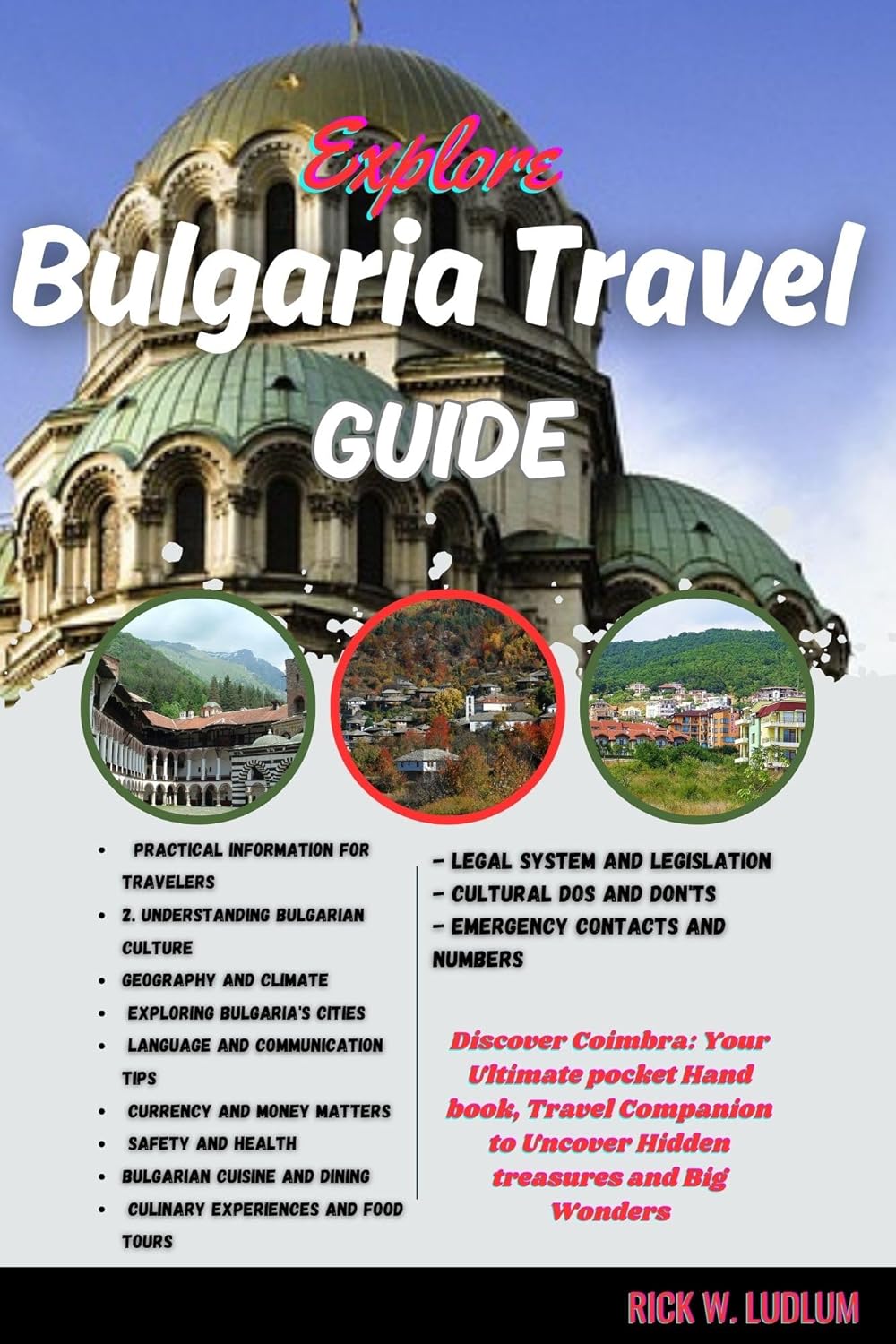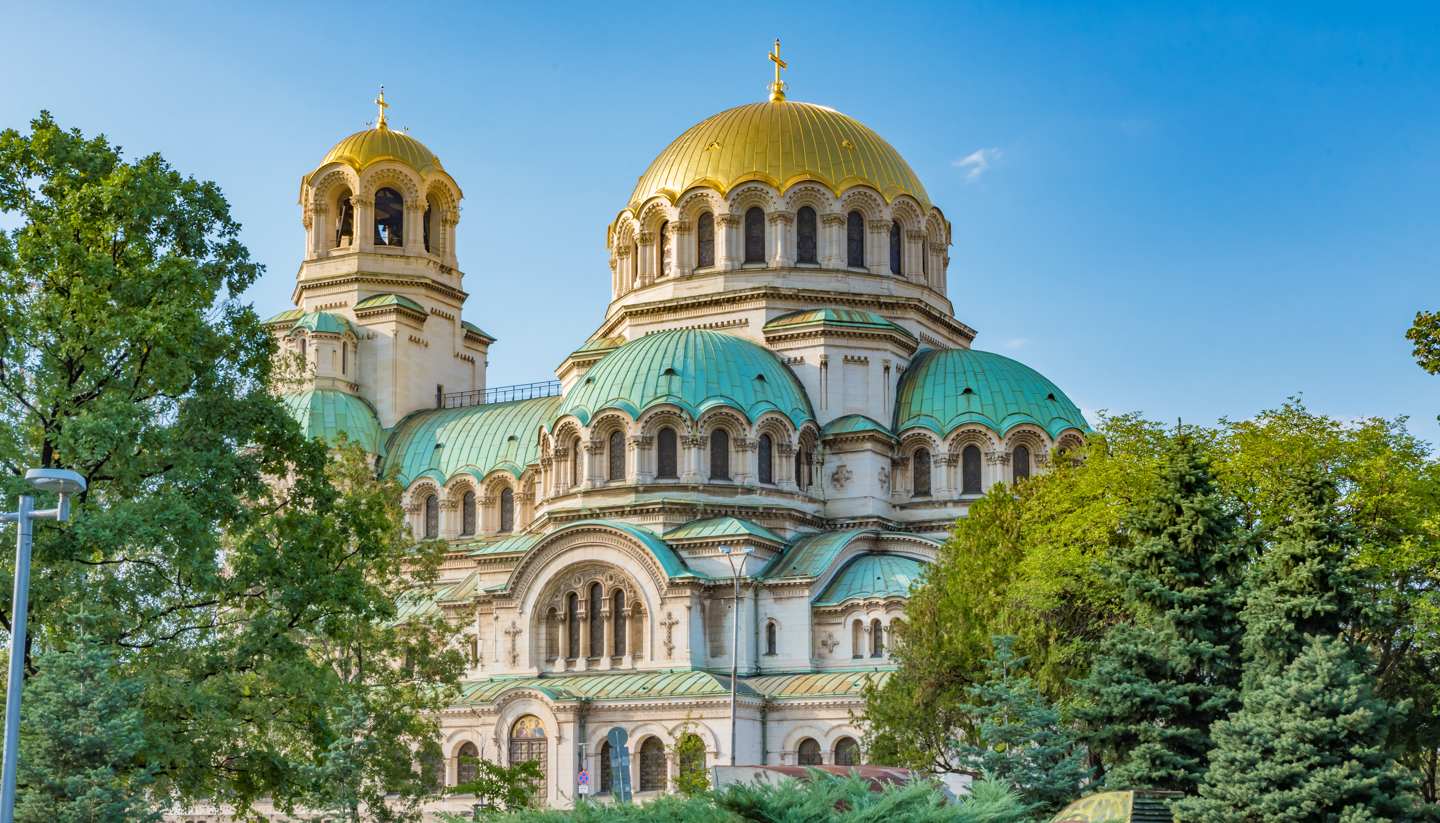
Nestled in the heart of the Balkan Peninsula, Bulgaria is a land of captivating contrasts. From the snow-capped peaks of its mountain ranges to the azure embrace of the Black Sea coast, from ancient Thracian tombs to vibrant, modern cities, Bulgaria offers a rich tapestry of experiences for every traveler. It’s a country steeped in millennia of history, boasting a unique cultural heritage, and surprisingly affordable for those seeking an authentic European adventure. This comprehensive guide will equip you with everything you need to explore this enchanting Balkan jewel.
A Glimpse into Bulgaria’s Storied Past
Bulgaria’s history is as complex and layered as its mountainous terrain. For centuries, it was a crossroads of civilizations, with its strategic location attracting invaders and traders alike. The Thracians, an ancient Indo-European people, left behind impressive tombs and artifacts, a testament to their advanced culture. The Romans followed, leaving their mark with well-preserved amphitheaters and roads.

Related Articles about Bulgaria: A Jewel in the Balkans – Your Comprehensive Travel Guide:
- Greece: A Timeless Odyssey – Your Comprehensive Travel Guide
- India: A Traveler’s Guide to a Land of Infinite Wonders
- The Land Down Under: An Epic Travel Guide to Australia
- Austria: A Timeless Symphony of Imperial Grandeur, Alpine Majesty, and Artistic Soul
- Journey to the Kingdom: A Comprehensive Travel Guide to Saudi Arabia
The First Bulgarian Empire, founded in 681 AD, was a formidable power in medieval Europe, contributing significantly to the spread of Christianity and the development of the Cyrillic alphabet, thanks to Saints Cyril and Methodius. The subsequent Ottoman rule, lasting for nearly five centuries, profoundly influenced Bulgarian culture, architecture, and cuisine, leaving a unique blend of East and West. The struggle for independence culminated in the late 19th century, leading to the establishment of modern Bulgaria. The 20th century brought periods of monarchy, communism, and finally, the transition to democracy and EU membership. This rich historical narrative is palpable in Bulgaria’s ancient ruins, medieval monasteries, and resilient spirit.
Top Attractions: Unveiling Bulgaria’s Treasures
Bulgaria’s diverse landscape and historical significance translate into a wealth of captivating attractions. Here are some of the must-see destinations:
1. Sofia: The Capital of Contrasts
Sofia, Bulgaria’s vibrant capital, is a city where ancient history meets modern dynamism.
- Alexander Nevsky Cathedral: An iconic Neo-Byzantine masterpiece, this colossal cathedral is one of the largest Orthodox cathedrals in the world and an unmissable landmark.
- St. George Rotunda: A tiny, remarkably preserved 4th-century Roman church, offering a glimpse into Sofia’s ancient past.
- Vitosha Mountain: Located on the city’s outskirts, Vitosha offers hiking, skiing, and breathtaking panoramic views of Sofia.
- National Historical Museum: Delve into Bulgaria’s rich history, from prehistoric times to the present day.
- Serdica Ancient Complex: Uncover the remnants of the ancient Roman city of Serdica, integrated into the modern city’s infrastructure.

2. Plovdiv: The Ancient European Capital of Culture
Often cited as one of the oldest continuously inhabited cities in Europe, Plovdiv is a bohemian delight with a captivating Old Town.
- The Roman Theatre: A magnificently preserved ancient theatre, still used for performances today.
- Kapana Creative District: Wander through the labyrinthine streets of this vibrant arts and crafts district, filled with galleries, workshops, and trendy cafes.
- Old Town: Explore the charming cobblestone streets, adorned with colorful Revival-era houses, and discover hidden courtyards and churches.
- Nebet Tepe: Climb to this ancient Thracian settlement for stunning views of the city and the surrounding plains.
3. Veliko Tarnovo: The Medieval Capital
Perched dramatically on the hills overlooking the Yantra River, Veliko Tarnovo was the glorious capital of the Second Bulgarian Empire.
- Tsarevets Fortress: Explore the imposing fortress, the former seat of Bulgarian kings, and experience the captivating "Sound and Light" show that narrates Bulgaria’s history.
- Samovodska Charshiya: Stroll along this charming street, reminiscent of old merchant bazaars, filled with artisan shops and traditional crafts.
- Arbanasi Village: A short drive from Veliko Tarnovo, this picturesque village boasts well-preserved churches with stunning frescoes, like the Nativity Church.
4. Rila Monastery: A Spiritual Sanctuary
A UNESCO World Heritage site, the Rila Monastery is an architectural and spiritual marvel, nestled in the heart of the Rila Mountains. Its iconic red and white striped buildings, intricate frescoes, and serene atmosphere make it a truly unforgettable experience.
5. The Black Sea Coast: Sun, Sand, and History
Bulgaria’s coastline offers a mix of bustling resorts and charming historical towns.
- Nessebar: Another UNESCO World Heritage site, Nessebar is a picturesque peninsula town with a rich history, featuring ancient churches and charming cobblestone streets.
- Sozopol: A charming fishing town with a relaxed atmosphere, known for its beautiful beaches and ancient ruins.
- Sunny Beach and Golden Sands: For those seeking lively beach resorts with plenty of amenities, these are popular choices.
6. The Rhodope Mountains: Nature’s Embrace
The "lungs of Bulgaria," the Rhodope Mountains offer breathtaking natural beauty, charming villages, and opportunities for outdoor adventure.
- The Devil’s Throat Cave and Yagodina Cave: Explore the impressive karst formations and underground wonders.
- Shiroka Laka: A well-preserved architectural reserve showcasing traditional Rhodopean houses and unique folk music traditions.
- Smolyan Lakes: A chain of glacial lakes offering stunning hiking trails and serene landscapes.
Essential Travel Tips for Bulgaria
To make your Bulgarian adventure seamless and enjoyable, consider these practical tips:
- Currency: The official currency is the Bulgarian Lev (BGN). Euros are sometimes accepted in tourist areas, but it’s advisable to use local currency.
- Language: The official language is Bulgarian, written in the Cyrillic alphabet. While many people in tourist areas speak some English, learning a few basic Bulgarian phrases like "Dobar den" (Hello) and "Blagodarya" (Thank you) will be greatly appreciated.
- Visa Requirements: Check the latest visa regulations for your nationality well in advance of your trip. Bulgaria is part of the EU, but not yet fully in the Schengen Area, so border checks may still apply for some nationalities.
- Safety: Bulgaria is generally a safe country for tourists. However, as with any travel, it’s wise to be aware of your surroundings, especially in crowded areas, and take precautions against petty theft.
- Tipping: Tipping is customary in restaurants (around 5-10% for good service) and for taxi drivers.
- Bargaining: While not as prevalent as in some other countries, bargaining can be acceptable in markets for souvenirs.
- Electricity: The standard voltage is 230V, and the frequency is 50Hz. Plugs are Type C and Type F.
- Water: It’s generally recommended to drink bottled water to avoid any potential stomach issues.
- SIM Cards: Purchasing a local SIM card is an affordable way to stay connected for data and local calls.
Accommodation Options: A Range for Every Budget
Bulgaria offers a diverse range of accommodation to suit every traveler’s needs and budget:
- Hotels: From luxurious five-star establishments in Sofia and along the coast to charming boutique hotels in historical towns, you’ll find a wide selection.
- Guesthouses (Kashti za gosti): These offer a more intimate and local experience, often family-run, and are particularly prevalent in rural areas and historical towns.
- Apartments: Renting an apartment is a great option for longer stays or for families, offering more space and the flexibility to cook your own meals.
- Hostels: Budget travelers will find plenty of well-equipped hostels in major cities, offering a social atmosphere and affordable dorm beds.
- Rural Tourism and Eco-lodges: For those seeking a connection with nature and traditional Bulgarian life, consider staying in rural guesthouses or eco-lodges in the mountain regions.
Transportation: Navigating Bulgaria with Ease
Getting around Bulgaria is relatively straightforward, with several convenient options:
- By Air: Sofia Airport (SOF) is the main international gateway. Varna (VAR) and Burgas (BOJ) also handle international flights, particularly during the summer season.
- By Train: The Bulgarian State Railways (BDZ) operates a network connecting major cities and towns. While not always the fastest, train travel offers scenic views and a relaxed way to see the country. Book tickets in advance for popular routes.
- By Bus: Intercity buses are a popular and often more frequent option than trains, connecting most towns and villages. Bus stations are usually located in the city center.
- Car Rental: Renting a car provides the most flexibility for exploring at your own pace, especially for reaching remote villages and natural attractions. Roads are generally in good condition, but be prepared for narrower roads in mountainous areas. Ensure you have an international driving permit if required.
- Within Cities: Major cities have public transportation systems including buses, trams, and trolleybuses. Taxis are readily available, but it’s advisable to use reputable companies or apps to avoid inflated fares.
Best Time to Visit: Embracing Bulgaria’s Seasons
Bulgaria experiences four distinct seasons, each offering a unique charm:
- Spring (April – May): The country awakens from winter with blooming flowers and pleasant temperatures. This is an ideal time for city breaks and exploring historical sites before the summer crowds arrive. Hiking in the lower mountain regions is also enjoyable.
- Summer (June – August): The peak tourist season, offering warm, sunny weather perfect for the Black Sea coast and outdoor activities. Mountain resorts are also popular for hiking and escaping the heat. Expect higher prices and larger crowds.
- Autumn (September – October): A truly magical time to visit. The autumn foliage paints the landscapes in vibrant hues, and the weather remains pleasant for sightseeing and hiking. The Black Sea coast is still enjoyable, with fewer crowds.
- Winter (November – March): Bulgaria transforms into a winter wonderland. Ski resorts in Bansko, Borovets, and Pamporovo attract snow enthusiasts. Sofia and other cities offer a cozy atmosphere with Christmas markets and festive decorations. However, some rural roads may be impassable due to snow.
Embracing the Bulgarian Experience
Bulgaria is a country that rewards the curious traveler. It’s a place where you can immerse yourself in ancient history, marvel at breathtaking natural landscapes, savor delicious traditional cuisine, and experience the genuine warmth of its people. From the bustling streets of Sofia to the tranquil monasteries nestled in the mountains, Bulgaria offers an authentic and unforgettable European journey that often flies under the radar, making it a true hidden gem waiting to be discovered. Pack your bags, embrace the adventure, and let Bulgaria capture your heart.





